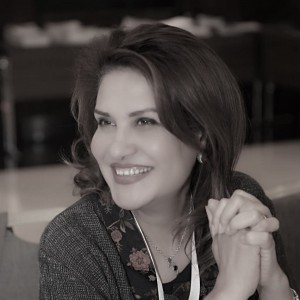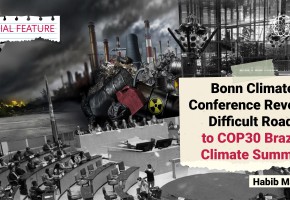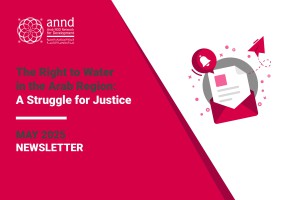When the Voice is Punished, Not the Crime: Francesca Albanese vs. the Global System - Gihan Abou Zeid
(An analysis of the UN Special Rapporteur’s reports on Palestine and mechanisms to break international silence)
The Sabra and Shatila massacres were not just passing news during her childhood, but the spark that awakened her early consciousness toward Palestine and opened the door to a cause that transcends geography and touches the human conscience. She is the Italian researcher and international lawyer Francesca Albanese, who grew up in southern Italy in a family that discussed justice as if it were part of daily life.
Francesca experienced how law clashes with the walls of silence when injustice becomes an institutional practice. In every report she authored as a UN Special Rapporteur, she tried to rescue justice from bureaucracy and restore a voice to the victims — a voice not masked by bureaucratic gray language.
Francesca lived in Jerusalem for three years, as part of her legal work with the United Nations Relief and Works Agency for Palestine Refugees (UNRWA). There, amid the occupied alleys, she witnessed daily systemic violence unlike the conflicts she had studied in law books. She described that experience as "a shock to the body and soul," where occupation exercised its repressive rituals on civilians, while soldiers returned to their lives as if nothing had happened. These years left her with a deep internal conviction that neutrality in the face of injustice is not a virtue, but complicity.
Before she was appointed as a UN Special Rapporteur, Francesca had already voiced her convictions openly: she described the Israeli occupation as a racist colonial system and criticized Western policies that ignore crimes against Palestinians due to the “burden of historical guilt” toward Jews. She co-founded the Global Network on the Question of Palestine and authored studies on refugee rights and legal representation.
When she assumed her UN mandate in May 2022, her tone did not soften — it became even clearer. Her reports were not gray bureaucratic documents but alive with human stance. She named genocide for what it was and dismantled the economy profiting from occupation. She did not yield to political pressure or threats of sanctions, insisting that her work was an extension of personal experience and a testimony that refuses denial.
Francesca is not only an international expert, but a woman who turned law into an ethical space, Palestine into a mirror of justice, and her position into a platform for those whose voices go unheard.
In March 2024, Francesca Albanese, in her role as UN Special Rapporteur on the situation of human rights in the occupied Palestinian territories, presented a report to the Human Rights Council titled “Anatomy of a Genocide.”
It was not just a legal document, but a clear declaration that what is happening in Gaza has surpassed the boundaries of war into a systematic crime of genocide. The report was based on compelling evidence at the time, including the killing of more than 32,000 Palestinians — 13,000 of them children — the displacement of 80% of the population, destruction of 70% of residential areas, and the deliberate starvation of two million people — all documented until early 2024.
But the real impact of the report extended beyond UN corridors to international advocacy arenas. Major human rights organizations like Amnesty International, Euro-Med Monitor for Human Rights, Al Mezan Center, and the Global Coalition for Palestine relied on it in their campaigns to halt arms exports to Israel, impose sanctions on responsible officials, and hold corporations supporting the occupation accountable. The U.S.-based platform Jewish Voice for Peace also used it to refute the accusations against Albanese and emphasize that criticizing the occupation does not mean anti-Semitism.
Although the report was politically rejected by Israel and the United States, it became a legal and moral reference in human rights forums. It was cited in arguments before the International Criminal Court, in European parliamentary sessions, and in media campaigns calling for an end to the ongoing genocide in Gaza. The report transformed from a UN document into a legal and moral tool of resistance, used to confront international silence.
From Occupation to the Economy of Genocide: A Report that Redefines the Crime
When Francesca Albanese titled her second report to the Human Rights Council in June 2025: “From the Economy of Occupation to the Economy of Genocide,” she wasn’t just crafting a catchy headline — she was coining a new conceptual term in international human rights discourse. While legal literature had typically described the Israeli occupation as an expansionist project with economic support, the report declared that the occupation had evolved into a profit-driven system based on genocide, involving multinational corporations, financial, technological, and academic institutions.
The report didn’t just document crimes; it deconstructed the economic structure that turns tools of killing and displacement into marketable commodities. It showed how Gaza became a field laboratory to test military technologies, later marketed globally as “effective and tested.”
Based on verified data, the report stated that Israel dropped over 85,000 tons of bombs on Gaza in under a year, causing more than 179,000 casualties and destroying about 70% of infrastructure and 81% of agricultural land. It also revealed the involvement of more than 60 global companies in supporting the occupation, including arms manufacturers (Elbit Systems, Lockheed Martin), tech giants (Microsoft, Amazon, Google), heavy equipment companies (Caterpillar, Volvo), and prominent academic institutions (MIT, TUM, Edinburgh).
On the financial side, the report indicated that major institutions like BlackRock, Vanguard, and BNP Paribas invested over $13 billion in Israeli bonds since October 2023 — despite being aware that these funds were used to finance the Israeli army.
The report’s power lies not just in its boldness, but in shifting human rights discourse from the level of violations to structural analysis. It shows that genocide is not a deviation, but a logical outcome of a global system where political will is absent and violence is granted legal cover or international silence. The report supported this approach by referencing cases such as the Rohingya genocide in Myanmar and the 2003 invasion of Iraq as indicators of the international community’s complicity in genocidal projects.
In light of this breakdown, the report made several precise recommendations: prosecuting companies and executives in court, similar to how German industrialists were tried after World War II; ending academic collaboration with complicit institutions; reviewing curricula that normalize occupation; and boosting grassroots pressure through boycott campaigns and transforming rights reports into tools for mobilization.
Despite this depth, the report displayed methodological gaps that weaken its legal weight: notably, the lack of direct field documentation, failure to classify levels of corporate complicity, and lack of analysis of responses from 15 companies that officially communicated with the Rapporteur’s office.
The most problematic — and perhaps most consequential — gap was the report’s omission of governments that sponsor and regulate the operations of complicit companies. These governments issue licenses, sign agreements, and provide legal protections, yet the report offered them no direct accountability or specific recommendations. This omission grants them unjustified political immunity and renders accountability incomplete — focusing on the tools, not those who wield them.
Thus, Albanese’s report stands as a landmark document in holding the private sector accountable — but it needs a bolder expansion to include governments in the map of responsibility, and to redefine the crime as a transnational system involving corporations, states, and international institutions alike.
Justice in the Crosshairs of Sanctions
On July 9, 2025, direct sanctions were imposed on UN Special Rapporteur Francesca Albanese by the United States, making her the first UN expert to face such overt political targeting. Her name was placed on a sanctions list under an executive order issued by President Donald Trump’s administration. The order included freezing any potential assets, banning her from entering U.S. territory, and prohibiting her from interacting with official or financial U.S. institutions. This was accompanied by a defamatory statement from Secretary of State Marco Rubio, accusing Albanese of “waging an illegitimate war against Israel and the United States” in response to her report, which called for holding U.S. and Israeli companies and officials accountable before the International Criminal Court for supporting genocide in Gaza.
This targeting was not just a rejection of a UN report — it was a political attack on the independence of Special Rapporteurs, who are supposed to be protected from government pressure. The United Nations expressed its “deep regret,” describing the sanctions as “a dangerous and unacceptable precedent,” and affirmed that Special Rapporteurs operate under international law, not to appease states.
Since taking up her mandate in May 2022, Albanese has faced continuous pressure from Israel and the United States, including being denied entry to the occupied territories and accused of bias and anti-Semitism. Although UN experts are appointed through international nominations approved by the UN, political pressure is often applied as informal professional siege, pushing toward ending or freezing their mandates.
The sanctions against Albanese revealed that exposing crimes — when they clash with the interests of powerful states — may be met with political punishment rather than legal accountability.
These sanctions sparked a wave of international solidarity. Organizations like Amnesty International and Human Rights Watch considered them an attempt to silence an independent legal voice. The organization Jewish Voice for Peace affirmed that Albanese “was not punished because she was wrong, but because she called genocide by its name.”
On the campaign level, online petitions gathered thousands of signatures demanding the immediate lifting of the sanctions. Public talks and interventions were organized in the European Parliament and the UN General Assembly, calling for added legal protections for UN experts against intimidation by powerful states. In academic circles, researchers proposed establishing a UN ethical charter that would prohibit targeting Rapporteurs and guarantee their freedom of expression and reporting without threat of dismissal or sanctions.
This campaign against Albanese is not merely a reaction to a report — it reflects the fragility of international justice independence when the voice of rights is met with intimidation rather than legal reckoning. In this sense, Albanese’s case becomes a mirror reflecting the extent of complicity overshadowing the UN system whenever human rights discourse approaches the interests of the powerful.


